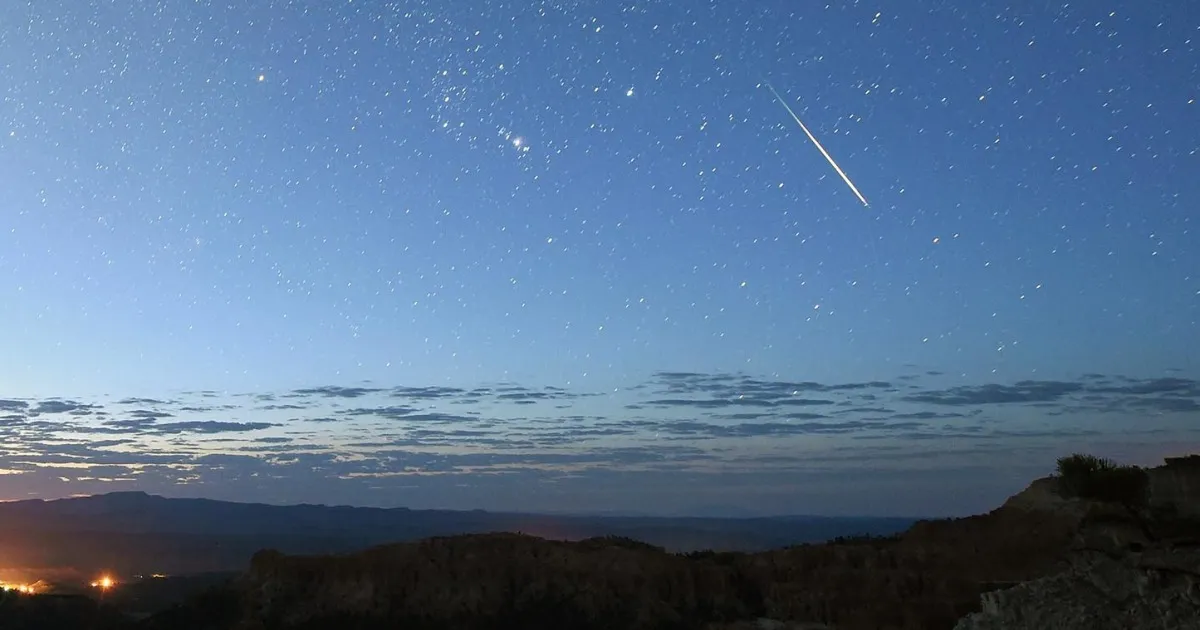
This July, skywatchers are in for a treat as three different meteor showers light up the night sky. The annual alpha Capricornids, Southern delta Aquariids, and Perseid meteor showers are all currently active, offering numerous opportunities to view shooting stars throughout the month. Each of these celestial events is set to last until mid-August, providing ample chances for stargazers to enjoy the wonders of the universe.
The alpha Capricornids meteor shower, while not known for its high activity, can produce a stunning display of bright fireballs. This year, the peak activity will occur overnight from July 29 to 30. Under optimal conditions, skywatchers might see about five shooting stars per hour. The meteors appear to emanate from the constellation of Capricorn, making it a fascinating sight for astronomy enthusiasts.
This meteor shower occurs when Earth passes through clouds of dust and debris from the comet 169P/NEAT, which orbits the sun every 4.2 years. During this year's peak, the moon will be approximately 27% full, providing a perfect backdrop for viewing. Skywatchers on both sides of the equator will have a chance to witness this celestial event.
The Southern delta Aquariids meteor shower is best appreciated from the Southern Hemisphere. This shower can produce up to 25 meteors per hour under ideal conditions, though the shooting stars tend to be fainter than those from other meteor showers. NASA recommends observing this shower in the early morning hours for the best chances of spotting meteors.
The Southern delta Aquariids are believed to originate from debris left by the comet 96P/Machholz, which completes its orbit around the sun every 5.2 years. Despite their often subtle appearance, the Southern delta Aquariids offer a unique opportunity to enjoy the beauty of the night sky.
Finally, the Perseids meteor shower is gearing up for its peak, which is expected to occur overnight from August 12 to 13. The Perseids are one of the most eagerly awaited skywatching events of the year, as they typically deliver a high rate of shooting stars during the warm summer months in the Northern Hemisphere. Under ideal conditions, this shower can produce up to 100 meteors per hour.
This year, however, the viewing conditions may be impacted by the moon, which will be around 84% full during the peak, potentially washing out many of the meteors. According to the American Meteor Society, these conditions could reduce visibility by at least 75%, leaving only the brighter meteors visible. The Perseids meteor shower occurs when Earth travels through a cloud of dust and debris from the comet 109P/Swift-Tuttle, making it a significant event for astronomy lovers.
To enhance your chances of witnessing these spectacular meteor showers, consider the following tips:
Choose a dark location away from city lights for optimal visibility. Check the weather forecast to ensure clear skies during the peak nights. Bring along a comfortable blanket or chair to enjoy the show in comfort. Be patient; it may take time for your eyes to adjust to the darkness.With three celestial events occurring simultaneously, this July promises to be a memorable month for skywatchers. Whether you're a seasoned astronomer or just looking to enjoy a beautiful summer night, these meteor showers offer a perfect opportunity to connect with the wonders of the universe.